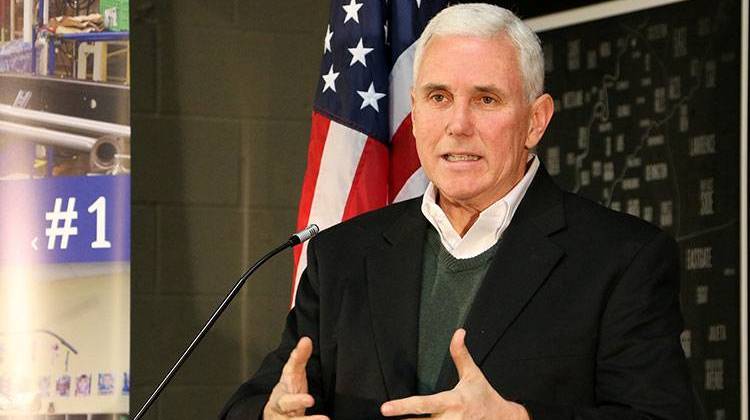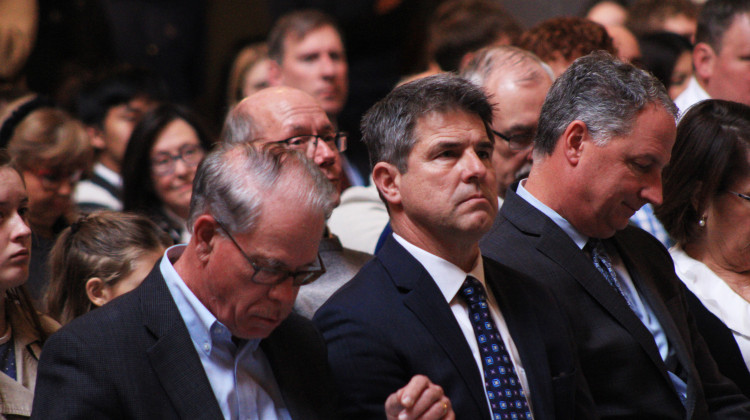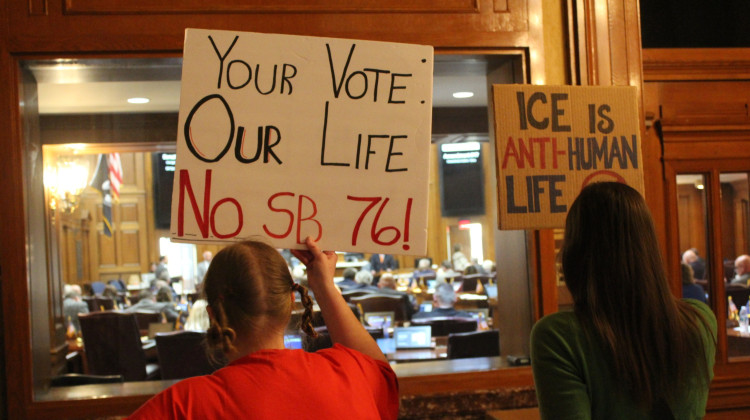Gov. Mike Pence made a pitch Tuesday for his plan to phase out a property tax on business equipment but he stopped short again of saying how local governments could replace the lost revenue.
Talking to entrepreneurs at a center for business start-ups, Pence said the state can’t compete with its neighbors for private investment without eliminating the tax, which generates $1 billion annually for cities, counties, schools, libraries and other local governments.
“As we look at phasing out this tax, we must do so in a way that does not unduly burden local government,” Pence said. “And I think we can.”
But Pence said he won’t be laying out a financial plan for eliminating the tax. Instead, he said his job as governor is to provide a vision and let lawmakers decide how to make it happen.
“I believe it’s essential that the Indiana General Assembly have a broad and robust debate about all the options for accomplishing that goal,” Pence said. “There are lots of good ideas about how we could do this in ways that are fiscally responsible and protect all those concerned.”
And for the first time, he also outlined a few ways that lawmakers could begin to eliminate the tax – giving local officials the option to act first, exempt new equipment purchases, or some combination of ideas.
“There are lots of good ideas about how we can do this in a way that’s fiscally responsible and protects the interests of all concerned,” Pence said. “However we go about it, I think we should not shy away from recognizing the burden this tax creates on the state of Indiana.”
But the governor didn’t outline any ways that local governments might make up the revenue. Pence called his proposal “tax reform,” a term Indiana policymakers have typically used to talk about tax shifts or increases in one tax to pay for cuts in another.
That’s in part how former Gov. Mitch Daniels and the General Assembly reduced property taxes. They shifted some local government functions to the state, eliminating the property tax rates that had been funding them locally but raising the sales tax to pay for them through the state budget.
And more than a decade ago, a number of counties got rid of their property taxes on business inventory – ahead of a later state elimination – by raising local income tax rates to make up the revenue.
Pence wouldn’t discuss any similar options on Tuesday. Instead, he spoke vaguely about the state’s economy.
“You can utilize time, utilize a growing economy, you can utilize other forms of taxation to capture the growth in the economy that would follow the right kind of tax reform,” he said.
Legislative leaders have said eliminating the equipment tax – called the personal property tax – is a worthwhile goal. And majority Republicans in the House plan to make it part of their agenda as well. But Senate leaders have been somewhat more cautious.
On Tuesday, Senate Majority Caucus Chairman Jim Merritt, R-Indianapolis, said lawmakers will have a vigorous debate about the issue because the governor has asked them to – but also because they believe that the tax is an impediment to development.
“What this session will probably be is a learning session,” Merritt said. “We will all encourage local government to be a part of the solution and that may be difficult but it’s a necessity.”
City and county officials have for years urged lawmakers to give them more authority to design their own tax structures so local governments can choose what taxes work best for their communities. Merritt said the debate eliminating the personal property tax could become part of that larger discussion.
Lesley Weidenbener is executive editor of TheStatehouseFile.com, a news website powered by Franklin College journalism students.
 DONATE
DONATE








 Support WFYI. We can't do it without you.
Support WFYI. We can't do it without you.